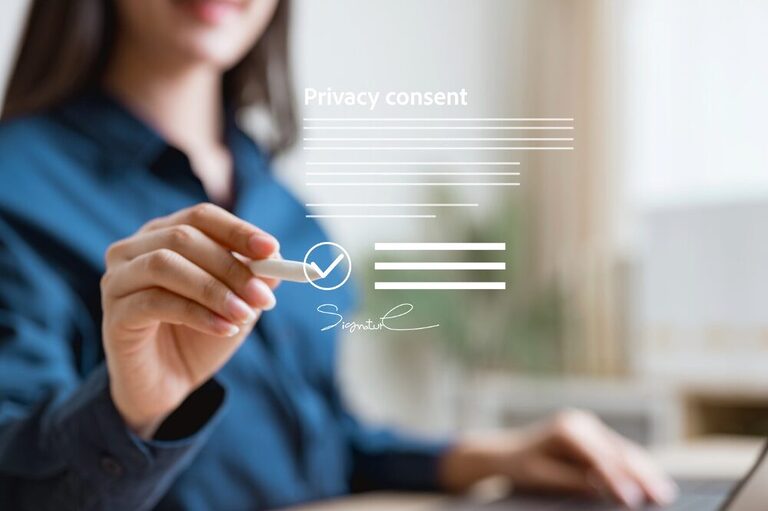A Maintenance Checklist for Long-Term Growth
Let’s be honest: legal stuff is boring.
Until it’s not.
Most bloggers don’t get into trouble because they’re doing shady things. They get into trouble because they set things up once, forgot about them, and then their blog grew.
New income streams. New tools. New readers from countries you didn’t even know were reading your blog.
This post is not about turning you into a lawyer. It’s about helping you maintain a legally healthy blog as it grows — the same way you maintain your site speed, security, and content.
Think of this as changing the oil, not rebuilding the engine.

What “Legally Compliant” Actually Means for a Growing Blog
Being “legal” as a blogger doesn’t mean perfection. It means:
- You’re transparent about how you make money
- You respect people’s data and privacy
- You don’t casually “borrow” content that isn’t yours
- You handle money and taxes like an adult (even if reluctantly 💀)
And here’s the key part most 2022 posts missed (including mine lol):
👉 Your legal setup changes as your blog grows.
A hobby blog with no income and 50 readers has very different risks than a monetized blog with affiliate links, ads, email marketing, and international traffic.
That’s why legal compliance is maintenance, not a one-time checklist.
The Blog Legal Maintenance Checklist (Bookmark This 👀)
This is the part you come back to every 6–12 months.
1. Review Your Disclaimers (Especially If You Monetize)
If you make money from your blog in any way, disclaimers and legal pages are not optional.
At a minimum, most bloggers need:
- An affiliate disclaimer (clear and visible)
- A general disclaimer when giving advice based on experience
- Niche-specific disclaimers (finance, health, legal, etc.), if applicable
This isn’t about covering yourself in legal bubble wrap.
It’s about honesty and transparency — which readers and regulators both appreciate.
Quick rule of thumb:
If a reader could reasonably act on what you say, you probably need a disclaimer nearby.
2. Keep Your Privacy Policy & Cookie Notices Updated
Your privacy policy is not a “publish once and forget forever” page.
It needs updating whenever you:
- Add analytics tools
- Start email marketing
- Use ad networks
- Install tracking pixels
- Change how you collect or store data
If your blog uses cookies (spoiler: it probably does), visitors must be informed and given choices — especially if you have international traffic.
The Cookie Policy is one of those boring pages that quietly protects your entire business.
3. Email Marketing: Legal, Boring, Necessary
If you send emails, the law cares.
Most regulations require:
- Clear consent
- An unsubscribe option
- A physical business address in your emails
Yes, this can be your home address — and no, that doesn’t mean you should use it.
Many bloggers use virtual addresses to stay compliant and protect their privacy. Legal doesn’t have to mean uncomfortable.
Some email marketing companies offer a business address you can use on your newsletters. Sometimes you have to pay for one separately. Sometimes you choose one, love it, but then that company no longer satisfies your personal quality control, and you have to find another one (small rant #sorrynotsorry).
Also worth knowing: violating email laws can get expensive very fast. This is one of the easiest maintenance wins you can fix in under an hour.
4. Copyright Hygiene (AKA “Don’t Borrow Trouble”)
Copyright issues usually aren’t malicious — they’re accidental.
Common problem areas:
- Images “found on Google”
- Screenshots used without context or permission
- Large excerpts copied without attribution
- Reposting content that isn’t yours
Fair use exists, but it’s not a magic shield.
In practice, it means limited, purposeful use with commentary and proper attribution.
When in doubt:
- Use your own content
- Use licensed or free-to-use images
- Credit and link back
- Keep excerpts short
This isn’t about being paranoid — it’s about not creating unnecessary risk as your visibility grows.
5. Taxes & Business Structure Check-Ins
Here’s the uncomfortable truth:
If your blog makes money, taxes are no longer optional.
You don’t need an LLC on day one. You do need to:
- Track income
- Understand your obligations
- Stop pretending PayPal income doesn’t count
(I read your mind, didn’t I? Been there, not judging 😂)
As your income grows, forming a business entity may:
- simplify taxes
- protect your personal assets
- make partnerships easier
This is one of those “future you will be very glad you handled this early” things.
Legal Risks That Grow With Your Blog
A bigger blog isn’t just more fun — it’s more visible.
That visibility brings:
- more scrutiny
- more responsibility
- more chances for misunderstandings
More traffic + more monetization = higher stakes.
This doesn’t mean blogging is dangerous. It just means growth changes the rules.
A blog with 10 readers and a blog with 100,000 monthly visitors are not playing the same game — even if the content looks similar.
How Often Should You Review Your Blog’s Legal Setup?
A simple maintenance schedule works surprisingly well:
- Every 6–12 months, do a full review
- Immediately review things if you:
- add new monetization
- install new tools
- start email marketing
- attract international traffic
You don’t need constant stress. You just need periodic attention.
Put it on the same mental list as:
- updating plugins
- checking site speed
- refreshing old content
What This Means for Long-Term Blog Growth
Legal maintenance isn’t exciting like planning a new blog.
It won’t get you Pinterest saves or viral traffic spikes.
But it protects everything else you’re building.
A legally healthy blog:
- keeps monetization stable
- makes partnerships easier
- reduces stress
- lets you focus on growth instead of cleanup
Boring systems are what allow creative work to scale.
Final Thoughts
You don’t need to be perfect.
You just need to be intentional.
Review your setup. Update what’s outdated. Fix what you’ve been ignoring.
Your future blog — and future you — will thank you.
And when in doubt? Professional legal guidance is always the safest option (big sis here talking from experience!)
Legal Maintenance FAQ (The Non-Scary Version)
Yes. Most blogs need at least a privacy policy and disclaimers. Monetized blogs usually need more.
It’s rare, but possible — usually due to copyright issues, defamation, or misleading claims.
Yes. Blogging income is business income.
Yes. Blogging income is business income. Think about it this way: if it’s income to pay rent, it’s income to pay taxes (I wasn’t the one making the rules!)
No. Many bloggers start without one. It becomes more relevant as income grows.
Sometimes. Screenshots often fall under fair use if used properly, but using your own or licensed images is safest.







Good luck!